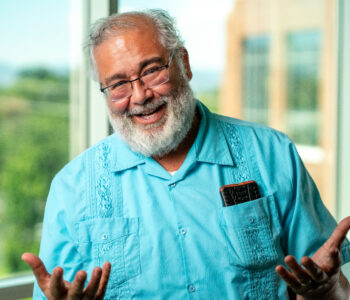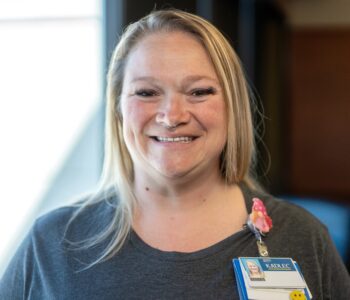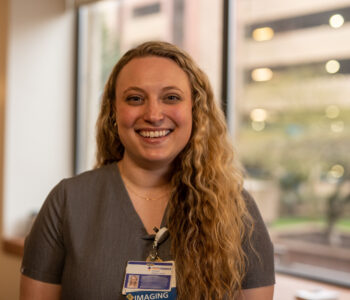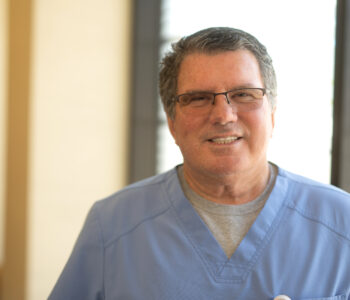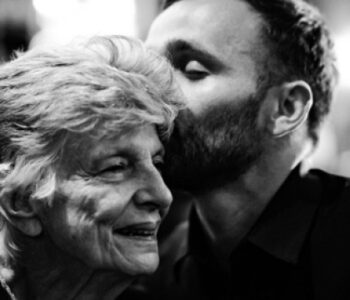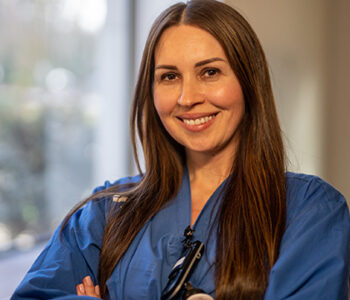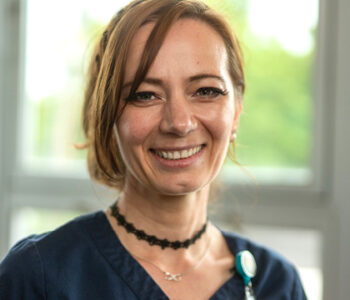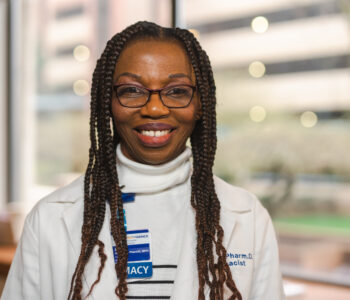 Caregiver Stories
Caregiver Stories
Insider Views: 10 questions with the executive director of the Providence Nursing Institute Clinical Academy
January 25, 2022
The Providence Nursing Institute Clinical Academy is one of the ways nursing looks different at Providence. It was created to develop, implement and standardize RN residencies and fellowships across the organization, focusing on clinical precepting, mentorship, and professional, emotional and personal support to help new or new-to-specialty nurses get the best start to their careers/roles.
Recently, we spoke with LeAnn Ogilvie, Executive Director, Clinical Academy, Providence Nursing Institute, about her path to her position, the greatest successes and challenges she’s experienced and why lifelong learning is so important for nurses.
- What was your path to becoming Executive Director of the Clinical Academy?
I started out as a Providence RN in Missoula, Montana in a Step-Down Unit as a new nurse. I was a direct care nurse for 16 years (most of that time was spent in critical care and emergency nursing) and then took a role as a Clinical Educator for the same Providence hospital and transitioned to the Director of Learning for the region. I co-led as the Magnet Program Director while I was in that regional role and after a couple years working with the Providence Telehealth team, in 2015, I was offered this role with Providence Nursing Institute.
- What has been one of the greatest challenges you’ve experienced in your role?
Recognizing that change, at many levels but particularly at the system level, takes time. From my experience in critical care, patient care interventions were implemented quickly, results were typically evident very quickly and I moved on to the next intervention. Change at large scale, across multiple care settings in different states takes time! It takes strong communication, intentional listening and collaboration. I have learned to trust that process.
- What has been one of your greatest successes in your role?
One of the greatest successes is leading the development and implementation of a transition-to-practice program that eases the way for our RN Residents. I remember, very clearly, the trepidation I felt, for what seemed like forever, every time I started my shift when I got my first RN job. To lead an incredible team who has successfully developed and help implement a nationally accredited, 12-month RN Residency program that supports new nurses during a very difficult transition is, hands down, my greatest success in this role.
- Why are nurse residencies/fellowships more important to nurses than ever?
Nursing is an extremely rewarding profession, but it is also extremely challenging. The art of balancing the science with caring was intense before the pandemic and now that intensity is not even measurable. Nurses transitioning to practice (either as new nurse or changing specialty) need an evidence-based approach to specialty training, profession expectations and dedicated peer support to be successful. Now, more than ever, the profession of nursing needs to wrap arms around these nurses to help them achieve high-quality, independent practice.
- How is the nursing profession changing for the better?
What I have noticed in the last 20 years in nursing is that nurses now are really owning our practice and assuming a role in leading the delivery of health care. In our hospitals, clinics, ambulatory settings, communities, schools, etc., nursing is grabbing a seat at the table (in some cases we are at the head of the table) where decisions are made that impact patient care. Nurses are the backbone of healthcare—there is really no way to deliver healthcare without nurses—and as we continue to lead the change that impacts patient care, that is bound to be a change for the better because nurses intimately know what patient care should look like.
- How is Providence contributing to positive change in nursing?
Investing in nursing transition-to-practice programs is a perfect example of Providence’s contribution to positive change in nursing. RN residencies and fellowships require dedicated human and material resources to successfully maintain high-quality programs. Providence’s commitment that every RN within our system has the opportunity to participate in a residency and/or fellowship is a commitment to the nursing profession.
- What is one piece of advice you’d give to a new nurse starting out in their career?
It’s worth it! Do not be afraid to ask questions. We have all been there and we are here for you.
- What is one piece of advice you’d give to an experienced nurse considering a new specialty?
Do it! There are hundreds of jobs within the profession of nursing and every nurse has unique strengths they bring to the role. Find the place where your strength shines!
- What is the Nursing Institute’s standpoint on lifelong learning and why is it important for nurses?
It’s required. Healthcare changes, constantly, we need to commit to lifelong learning to provide the level of care our patients need. The advancement of technology, interventions/procedures, medicine and all the other challenges (pandemic, for example) require nurses to continually be ready to learn and advance knowledge.
- How is nursing at Providence different than at other organizations?
Honestly, I don’t know exactly what “it” is. I traveled for about two years as a critical care RN when I was in my 20s. I left Providence, not for any reason other than to get out of my home state, and I recognized, within months, that Providence nursing is different. There is something about the commitment to the patients and other nurses that just didn’t seem as evident in the organizations I traveled to. There is something different, but I can’t exactly say what it is, but I was really glad to come back.
Does Providence sound like a place where you’d like to grow your nursing career? See all open nursing roles.

